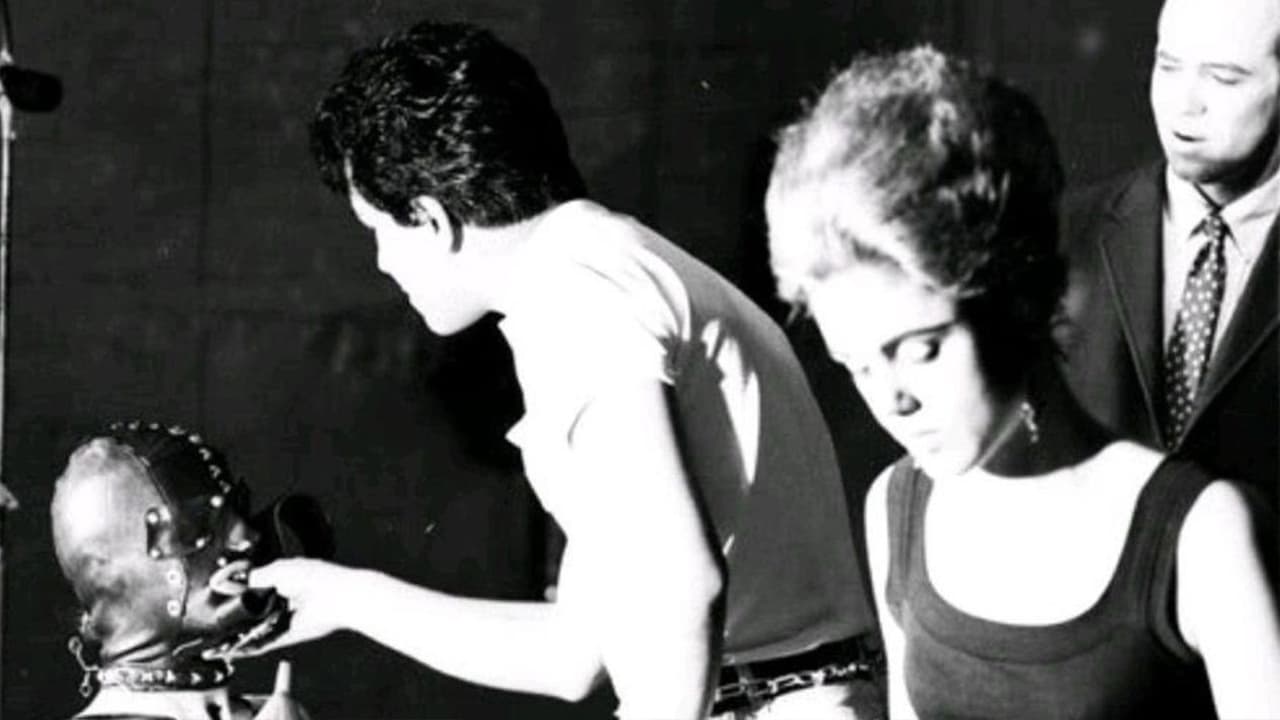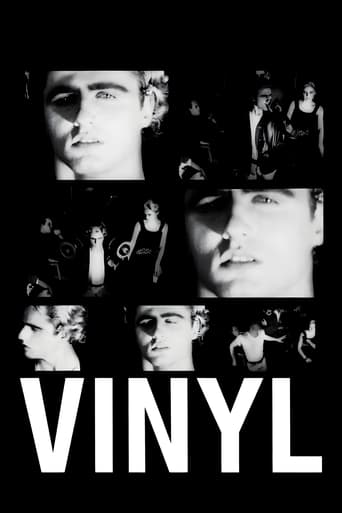

There are bad movies, and there are BAD movies. After 70 agonizing minutes, I realized this is genuinely in the running for worst movie I've ever seen. I can't think of a single redeeming feature, just the bad ones, from the wooden acting, truly unimpressive cinematography and staging, (I'd complain about the editing, but there is none), etc. Best to just read the book and watch the Kubrick movie.
... View MoreAndy Warhol's Vinyl (1965) marginally makes more sense when you view it as an adaptation of Anthony Burgess's 1963 novel A Clockwork Orange-- marginally. The Russian-inspired nadsat slang is Americanized. The criminal main character does not rape and pillage so much as puff out his chest, make speeches about his wrongdoing, and dance to pop music while Edie Sedgwick lounges nearby. The Ludovico treatment is related in a manner akin to a play from the English Renaissance, with the main character telling us what he sees. The acting is pretty bad. The whole thing is shot from two static angles. The sound is muffled, sometimes incomprehensible. So why did I give it seven stars?Vinyl is one of those movies where the concept trumps the actual content. This picture is all about satirizing Hollywood filmmaking by drawing attention to the artifice of filmmaking. Thus why Warhol has his untrained actors act as unconvincingly as possible. Thus why the plot feels so slap shod. It's clever once you "get it," I suppose. I know I was amused, but it won't impress everyone, even those who do recognize the satire at play. However, it's best not to come to it as an actual narrative film or as a bad attempt at adapting ACO before Stanley Kubrick made his classic 1971 version.
... View MoreMan, that Andy Warhol must have really not wanted to spend any money on his movies. I can't even really call this a movie, since it follows no story, and no real directing and acting.Watching this was an horrible experience and it actually felt like a torment. What this movie basically is are Andy Warhol's usual groupies sitting in a corner with a camera pointed at them, doing either weird stuff or absolutely nothing. Appearantly this was Andy Warhol's version and interpretation of Anthony Burgess' 'A Clockwork Orange' but the movie doesn't even follow its story. It's as if Warhol one day picked up a camera and said 'let's shoot something, I'm bored!'. I'm sure they all had good fun doing weird stuff in front of the camera but why bother us with it? The movie doesn't make a point about anything. It doesn't provoke and it's not even artistically a well shot movie.The camera doesn't move at all, not even when the actors accidentally are out of frame. Also no cuts were made and I'm pretty sure they never rehearsed or prearranged anything. Everything was shot on the spot and things were made up as it moved along. As a result of this the movie just goes on and on, even when absolutely nothing is happening. I seriously had to fast-forward through most of this movie or else I would had most likely never been able to finish it. It was that pointless, annoying and just plain awful to watch.Funny thing is that the 'actors' themselves also didn't had a clue what they were doing. You can constantly hear voices off cam whispering their lines and saying what they should do next. Besides, they are simply horrible at what they are doing. Edie Sedgwick constantly had a hard time not laughing or looking at the people behind the camera's. Highly annoying and distracting.Completely unwatchable, even from an artistic viewpoint.1/10http://bobafett1138.blogspot.com/
... View MoreThis footage is little more than a filmed rehearsal in a corner of a warehouse. Warhol demonstrates the 'less is more' mantra to an unplumbed basement of embarrassment. This vision of Warhol's really has nothing to do with the medium of film, and all that is learned is that he was very spoiled to have the resources in order to make this, for there are bound to be more important artists and concepts (and even adaptations) that went un-filmed in this era of early experimentation.Warhol fills a stage with the cast, and we can only sympathize with them, for their talents are criminally obstructed by the moronic limitations imposed upon them. With presumably only the source text (a novel) to go by (for who would argue that any useful screenplay was written?), the actors go about filling out the bare guidelines of the inappropriately treated material. Warhol, like a spoiled child, asks so much of his cast while giving so little; and beyond that, he almost seems to obstruct or minimize the source material.Given this, the performers do what they can when they can, and without them, this film would have nothing to give. Warhol's demonstrated contempt for cinema acts as a saboteur; the performers at the mercy of his nonconstructive (mark it, not 'de-constructive') approach, and we are forced to watch them feel for cues, lines and staging directions. Shamefully, it is left for them to stick their necks out. Warhol, like a selfish undergraduate, seems to hide childishly behind the camera – the very last place any true artist would escape to.Carillo, Latrae and particularly Malanga are victorious even with these enormous obstructions (not, I argue, because of them). Their lines are delivered fairly robotic-like and sporadically; a rhythm is established because of this, but it abandoned well into the 'second-reel'. Here we are treated to some off-camera sadism, while even the most hardened of extras (E. Sedgewick for example) remain distant, unmoved and as bored as anyone else involved: actors and audience alike. When the cast display indifference and the director promotes his carelessness, we are only left with spectacle. Even there, 'Vinyl' has little to give. The highlight of the film (or at least the most memorable set piece) is that of Malanga dancing to 'Nowhere to Run'.Twice.Following this there is a smattering of whipping, strapping, beating and struggling. The film then descends into further unscripted stumbling and ramblings. Most of it stays in frame.I can't see what Warhol gave us with this film. The narrative is lost, the actors are maltreated, and the production values do more harm than good. Warhol fails on virtually all grounds here – the real kudos needs to go to the performers. This film is a very selfish one, spawned from a selfish, lazy director.
... View More